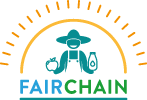
Apr 3, 2024

In the Greek Case Study, we employ blockchain technology to improve traceability, transparency, and information sharing in the context of two dairy processes chains that of the PDO Feta cheese and traditional sheep yoghurt. The blockchain-based traceability platform stores information on milk origin, milk content, and production processes for these two dairy products so that it can be later offered to the consumers. Blockchain allows a decentralized platform, where the production stakeholders contribute information which is immutably registered. Consumers have access to this information after scanning a QR code on the Feta cheese or sheep yoghurt package they have at hand or are considering buying.
This period has marked the completion of the platform design and implementation, including the Ethereum smart contracts that prove the integrity of the traceability data and the compliance of the production with the rules stemming from the legislative framework and best practices of the dairy. During this period the approach and the results have been verified through on-site piloting in Stymphalia dairy under realistic conditions. A series of Feta cheese and sheep yoghurt productions were realized and tested with the FAIRCHAIN consumer timeline blockchain-based traceability application.
The products were provided to stakeholders, consumers and to consortium members during the September 2023 project plenary meeting that took place in Greece.

Apr 2, 2024

As we journey through the FAIRCHAIN project, we’re excited to share our latest achievements within the Swedish Case Study in nurturing sustainable and community-focused berry value chains, locally placed in Bjurholm in Sweden.
Our engagement in Bjurholm has led to the creation of “Bär-i-bygden,” a community-centric model set to create an alternative to the international berry industry by fostering local pride and prosperity. This organization encourages passionate local ambassadors, with tailor-made solutions that resonate within our community. Through co-creation and dynamic workshops, we’ve brought together a diverse spectrum of stakeholders, from tech to policymakers, fostering a collaborative environment that triggers innovation across the entire berry value chain.
We’re also proud to report progress in reducing transportation-related carbon emissions through smarter berry picking and distribution strategies, promising significant environmental benefits. And our ICT tool development is yielding promising results, poised to streamline berry picking processes and reduce resource strain. With initial models ready for field testing, we’re on the edge of transformative change.
Keep an eye out for more updates as we journey towards a more sustainable and prosperous berry industry right here in Sweden!
Past and upcoming events
• B2B event in February-March: We had an exciting B2B event where local berries took center stage in Umeå and Bjurholm stores. We evaluated the market potential of local picked berries and deepened relations with local businesses.
• Final co-creation event: Thursday, March 21st, we had our final co-creation event, showcasing our progress, business concept and ICT tool.
• Demo event: Friday, August 23rd, we will showcase our innovative business concept and ICT tool. Your insights will be invaluable as we continue to refine and innovate.
• Berry festival: August 24th, we come together to celebrate our local berry herritage at a delightful festival. Stay tuned for more details!
• Scaling up berry picking: We’re actively exploring ways to scale up berry picking to meet growing demand, aiming for production levels of 2-5 tons.

Apr 1, 2024

In the Belgium Case Study, Ghent University investigated the issue of microbial contamination of pre-stacked recyclable packaging materials for food, such as PP, PET and PE containers or pouches. In small to large-scale (semi) liquid food producers, including those employing aseptic packaging techniques, instances of microbial presence were identified during sampling campaigns in packaging halls. This discovery underscored the need for robust sterilization to maintain packaging and ensure the safety and quality of food products, especially for Intermediate Value Chains (IVCs) where ensuring product integrity and safety is paramount to fostering consumer trust and supporting the sustainability goals of the value chain..
A disinfection technique with peracetic acid (PAA) vapor offers a promising solution to ensure the sterility of spouted pouches for liquid foods In vapor form. PAA addresses challenges associated with the traditional liquid, such as reducing water usage and minimizing chemical residue, , aligning with the sustainability and resilience principles of Intermediate Food Value Chains (IVCs). The technique was tested with a prototype disinfection unit, constructed by Scaldopack which allowed controlled delivery of sterile, hot compressed air and vaporized peracetic acid onto spouted pouches.
Crucial process parameters are monitored spore inoculation with resistant bio-indicators, like the mould Aspergillus niger, ensure precise contamination for accurately assessing disinfection efficacy.
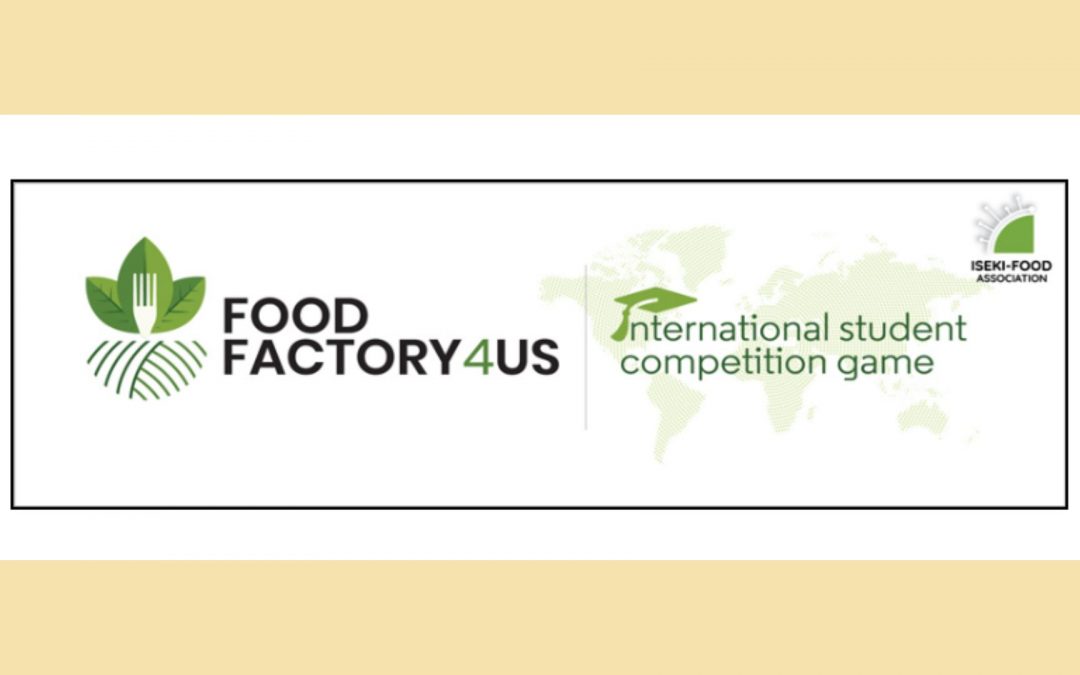
Feb 27, 2024
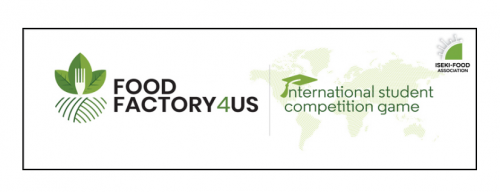
The FoodFactory-4-Us international student competition has started! Eight teams have been selected and are currently working on projects around the topic ‘Upscale or downscale a food supply chain to a national or regional level‘.
The competing teams are developing the following projects:
- Barley Bakes – Curation and development of a barley brownie to meet the nutritional needs of 2-15 year olds
- Apple Link – From private gardens to good use – or better yet, juice!
- Dabagira – Production of composite flour of selected food as a way of improving food supply chain that result the reduction of malnutrition and stunting
- SLSU-Pud Tek – Scaling Up Halang-halang processing in Southern Leyte, Philippines
- PAFT de SLSYou – Upscaling of Hilongos’ Native Kakanin: Preserving Tradition in Modern Times
- Baker team – Cookies and pastries for special dietary uses made with resistant starch as an ideal fiber source
- HighFig – Overcoming the Distribution Maze: A Roadmap to Tackle Logistics Challenges in Bursa Black Fig Distribution
Visit the competition website to get the detailed activity calendar and view session recordings.
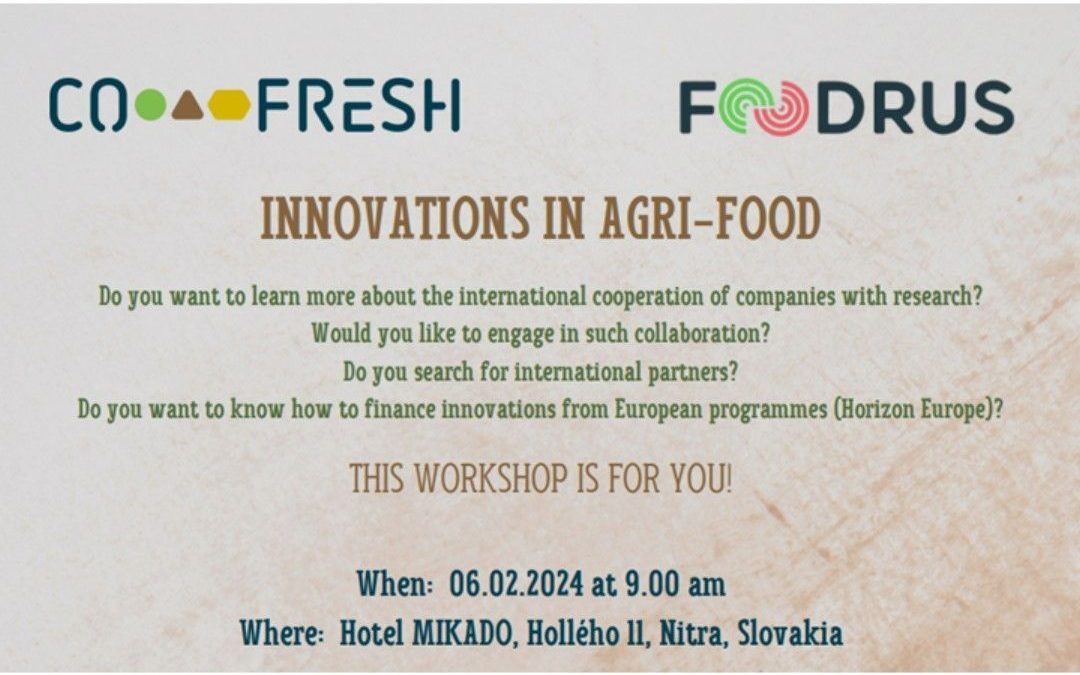
Feb 8, 2024
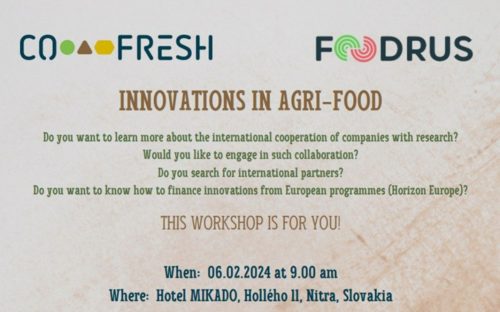
This week, FAIRCHAIN participated in the Innovations in Agri-Food workshop organised by the CO-FRESH and FOODRUS projects in Nitra, Slovakia.
Hartmut Derler (FH JOANNEUM) shared the findings of the Food Innovation Incubator case study with presentations on ‘Consulting, networking and prototyping of products, processes and technologies’ and ‘Collaboration with practice: Findings from the project FAIRCHAIN.’


